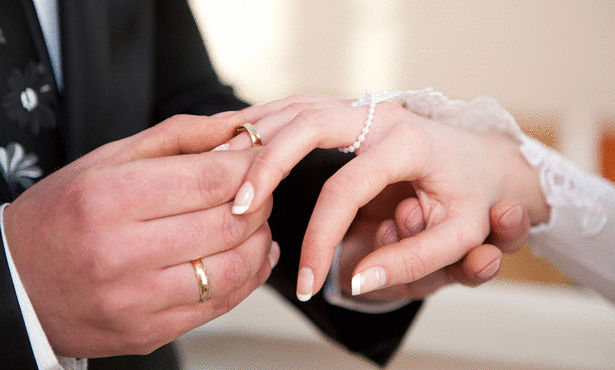The Right of a Woman to Choose her Husband

Islam has granted equal rights to men and woman in choosing their spouses. Because an Islamic marriage is valid and legitimate only if there is genuine consent on the part of both husband and wife, parents (and all other parties) are prohibited from forcing their children into unwanted marriages. Their role and responsibility is limited to that of giving advice and guidance.
A woman has complete freedom to accept or reject any proposal presented to her. The final decision to marry rests with her. The wisdom behind this is the low likelihood that a healthy family life will result when a marriage is conducted under duress, for this is an obstacle to what Allah demands of both spouses in their lives together: that is, that they foster mercy and compassion towards one another.
This position is attested to by numerous textual proofs. Al-Nisa’i records that a man married off his daughter to a man she disliked. So the daughter came to the Prophet (the peace and blessings of God be upon him) and said, “What if my father married me off to a man while I disliked this, and my cousin came to ask for my hand?” The Prophet responded, “There is no marriage [to the first man]. Marry whom you wish.”1 Similarly, al-Nisa’i relates on the authority of Khansa’ bint Khadham that she said, “My father married me off against my will while I was a virgin, so I complained to the Prophet, and he said, ‘Do not marry her off against her will.’”2
The prophetic texts that refer to this all affirm this right as in is the saying of the Prophet, “A widow may not be married until she has been consulted, and a virgin may not be married until her consent has been sought.” They said, “O Messenger of God, how does she give consent?” He said, “By remaining silent.”3
It is related that there was a woman from among the Ansar4 who was married to a man from among the Ansar. The man was killed in the Battle of Uhud and he had one son from her. Her son’s uncle was betrothed to her so he married her to the man and disregarded her son’s uncle. She came to the Prophet and said, “My father married me to a man that I do not want and disregarded my son’s uncle, so my son is going to be taken from me.” The Prophet called her father and said, “Did you marry so and so to so and so?” He said, “Yes.” The Prophet said, “You are the one who has no right to make marriages.” [Then he said to the woman,] “Go marry your son’s uncle.”5
Concerning the hadith of the Prophet narrated by al-Bukhari and Muslim that says, “Aisha asked the Prophet if a young girl whose family marries her off should be consulted. He said, ‘Yes, she should be consulted.’ Aisha said, ‘But they are shy.’ He said, ‘If she remains silent, that is her consent.’” Ibn al-Qayyim says, “We adopt this fatwa; a virgin must be consulted [concerning her marriage]. There is an authentic tradition that the Prophet said, ‘Widows are more deserving of [deciding for] themselves than their fathers; virgins are consulted concerning themselves, and their consent is their silence.’ In one version it reads, ‘The virgin’s permission is sought by her father, and her permission is her silence.’ It is related in al-Bukhari and Muslim that the Prophet said, ‘Do not marry off a virgin girl until her permission is sought.’ They asked, ‘How is her permission [given]?’ He replied, ‘By remaining silent.’ And a young virgin girl told him that her father married her off and she was averse [to the marriage], so the Prophet gave her the option [whether or not to remain married]. So he enjoined seeking out the consent of the virgin girl, forbade marrying her off without it, and gave an option to whoever had been married without having their permission sought. How then can we leave all of this and go against it?”6
The attention Islam pays to the issue of choice between a husband and wife is, in reality, a concern for the nucleus of the family. Family begins with a man and a woman who come together with a great deal of mutual understanding that has an affect on the family when it grows and its members increase. Family is the essential building block of society, and upon this sound basis civilizations are established and values are elevated.
The words of Ahmed Shawqi, the Egyptian Prince of Poets bears witness to the importance of women in the foundation of Muslim society, “Mothers are schools if you prepared them…then you prepared a great nation”.
 Arabic
Arabic French
French Deutsch
Deutsch Urdu
Urdu Pashto
Pashto Swahili
Swahili Hausa
Hausa
